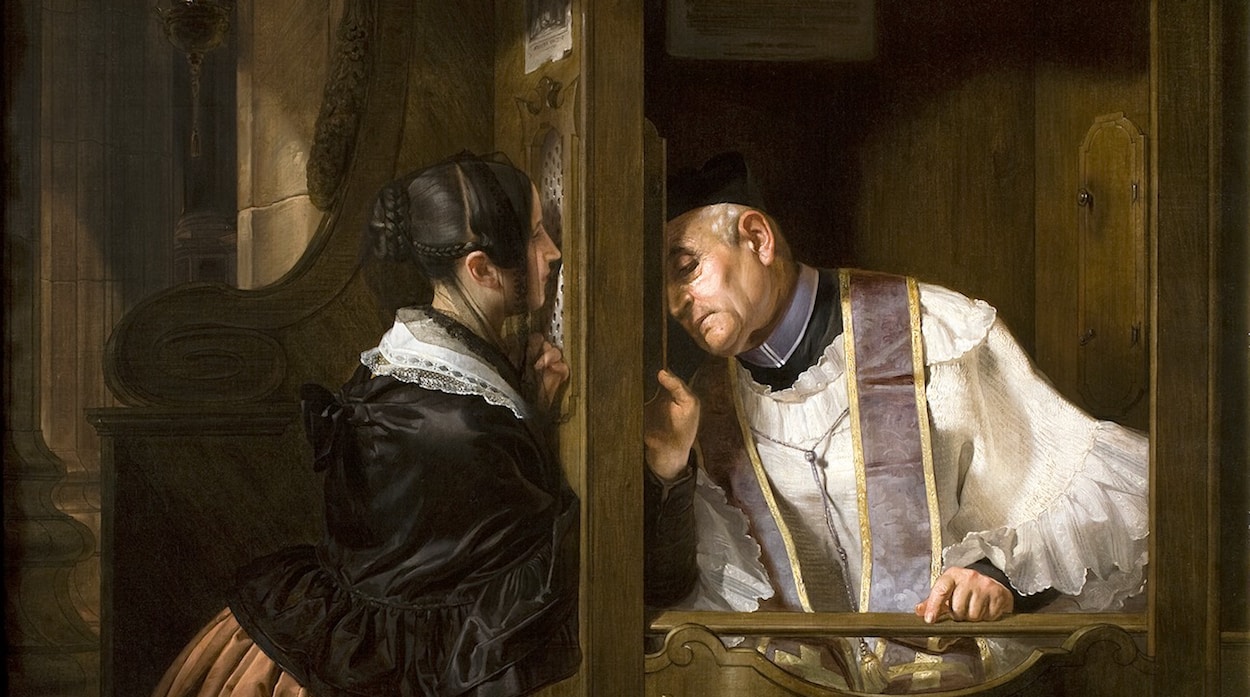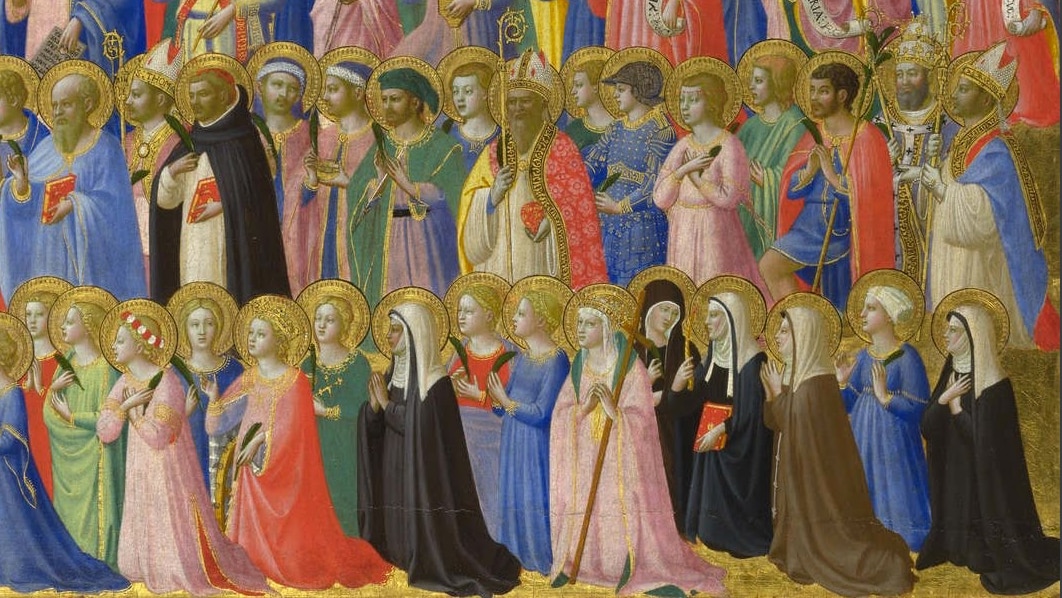In the Litany of Humility taught to me by the Miles Christi order, I have always seen a paradox in asking to be granted a “continuous memory of my sins.” I’ve read commentaries on Ignatian spirituality that take various sides on this theme. Personally, I can see value in recalling my sins as a “lessons learned” experience. I am also aware of the need, at times, to let go of the past to enable a new freedom in the future.
WHY RECALL OUR SINS?
Recalling our sins can be a gift of the Holy Spirit. I often find that at times when I am in a mode of being a bit too pious, something arises that recalls a past action or time in my life that I am not so proud of. It can be a song that I hear, a phrase on TV or more recently, a revelation of a similar experience in a book that I am reading. My consciousness recalls the memory of an experience that has been lost, either intentionally or unintentionally, to the passage of time. I experience feeling the return of an embarrassment in myself by becoming aware again that such an event is part of my history. When this occurs, I reflect on who that ”Greg” was, what was he thinking (or more commonly “not” thinking… ) and why I was wrong. With the remorse comes, on a good day, reflection on how that “Greg” is not around anymore. Sometimes the reflection is how he is still here, and I don’t want that Greg to be around anymore.
Recalling such events in the past reminds us that we are all on a journey and that God meets us where we are at. Recalling my sin enables me to avoid being a hypocrite when seeing that sin in others. I cannot cast that first stone. (John 8:7) Besides this self-correction in being judgmental, I recall the intent of the Our Father in saying “as we forgive others.” So often we miss, in our rapid succession of rote prayers, that we must see the same forgiveness in others that we ask God to see in us. We get so wrapped up in our forgiveness that we act like the servant who was forgiven and then held others accountable for the same sin. (Matthew 18:21-35) We wrongly think we act as the master in that parable when oftentimes we behave as the unmerciful servant. In the reawakening of a memory, the Holy Spirit guides us away from our hypocrisy. Pius Greg is humbled back to where he should be.
One of my learnings of late in spiritual direction is the need to “give God room to work” in peoples lives. The Holy Spirit brought me out from a darkness. Am I going to allow God to be big enough to work in others as well? I am amazed at how much God can get done some days without my input!
WHY WE NEED TO LET OUR MEMORIES OF SIN GO
I am fortunate to live near a local La Salette shrine. One of the charisms of La Salette Missionaries is a ministry of reconciliation. A priest from there told me once that, in his experience, the biggest challenge he sees in the Sacrament of Reconciliation is people not believing that God has truly forgiven them. As the saying goes, their God is not big enough. God’s love is more than we can imagine. We all need to reflect that with repentance, God will reconcile with us. No sin is too big for God to forgive. It is we who place the limitation. We need to recall that reconciliation is a process: when we throw a ball through a window and break the glass, we can be immediately forgiven for the act. Nevertheless, we still need to replace the window. Too often, we “replace the window” without opening ourselves to the healing of forgiveness. In turn, we also miss that forgiving others is as healing for us as being forgiven.
So, if we have repented and the sin is not reflective of who we are now, we must let it go. (Assuming we’ve confessed it.) Others must let it go as well. We must enable that freedom in ourselves and for others in order for God’s forgiveness to be free to redeem. Holding a grudge is a sign that forgiveness has not been granted. If we want the chance to repent, which means to change direction. we must liberate what is holding us back. If God has forgiven, why can’t I?
Too often we worry that people still see us in our old ways – “No prophet is accepted in his home town.” (Luke 4:24) Rather than allowing others to hold us back, we must have faith to see and believe the change in ourselves. St. Paul was known for his persecution of Christians and yet became an apostle. St. Augustine lived a life of secular indulgence and became a Doctor of the Church. Neither hid from their past. Rather, they embraced their repentance and lived in the light of Christ. Their courage gives us courage to meet Christ where we are at and, freedom to move forward with him.
MOVING ON
How do we know whether to recall or to let go of past sins? We don’t. It is only through reflection can we discern. In his Discernment of Spirits, St. Ignatius gives us the key. If the memory is producing a good effect in us, it is from the Spirit and we should act upon it. If not, we must reject it and move on. It is never the simple answer, is it?
Sadly, in today’s political environment, we see too much judgment going on. People are publicly judged for actions that are decades past. Who can survive such a standard? Rather than hanging them for their past, we must see them as they are now. It might be that they have not changed much. Perhaps, like us, they are on a journey with the Spirit. Have we given God a chance to work in their lives as we need him in ours? As importantly, do we accept that God has forgiven them and, as such, we must follow His lead and forgive as well?
Greg at 16 was a foolish kid. Greg at 30 was a good guy who left Mayberry still learning to be an adult and what it meant to live his faith. Greg today is still working on it. All three are me but, only one is who I am at the moment. Amen!








